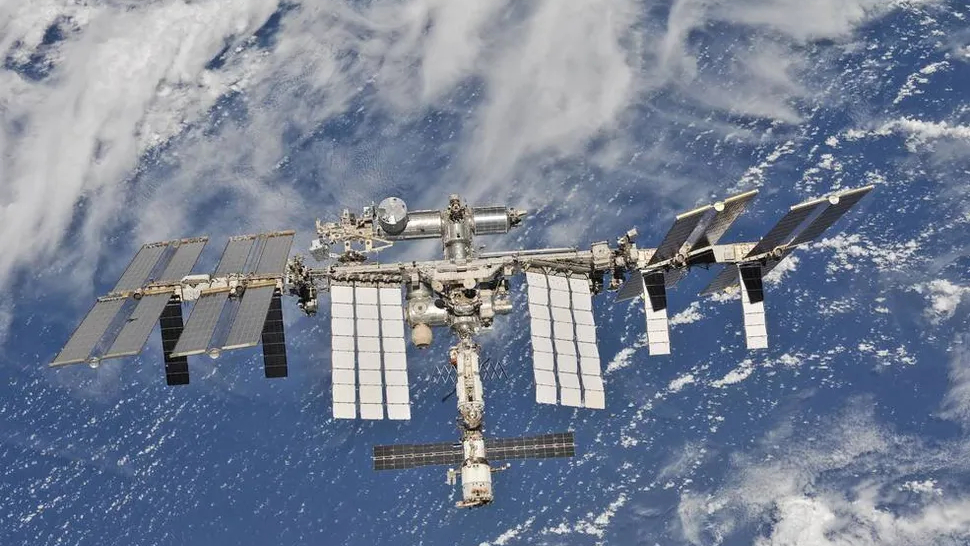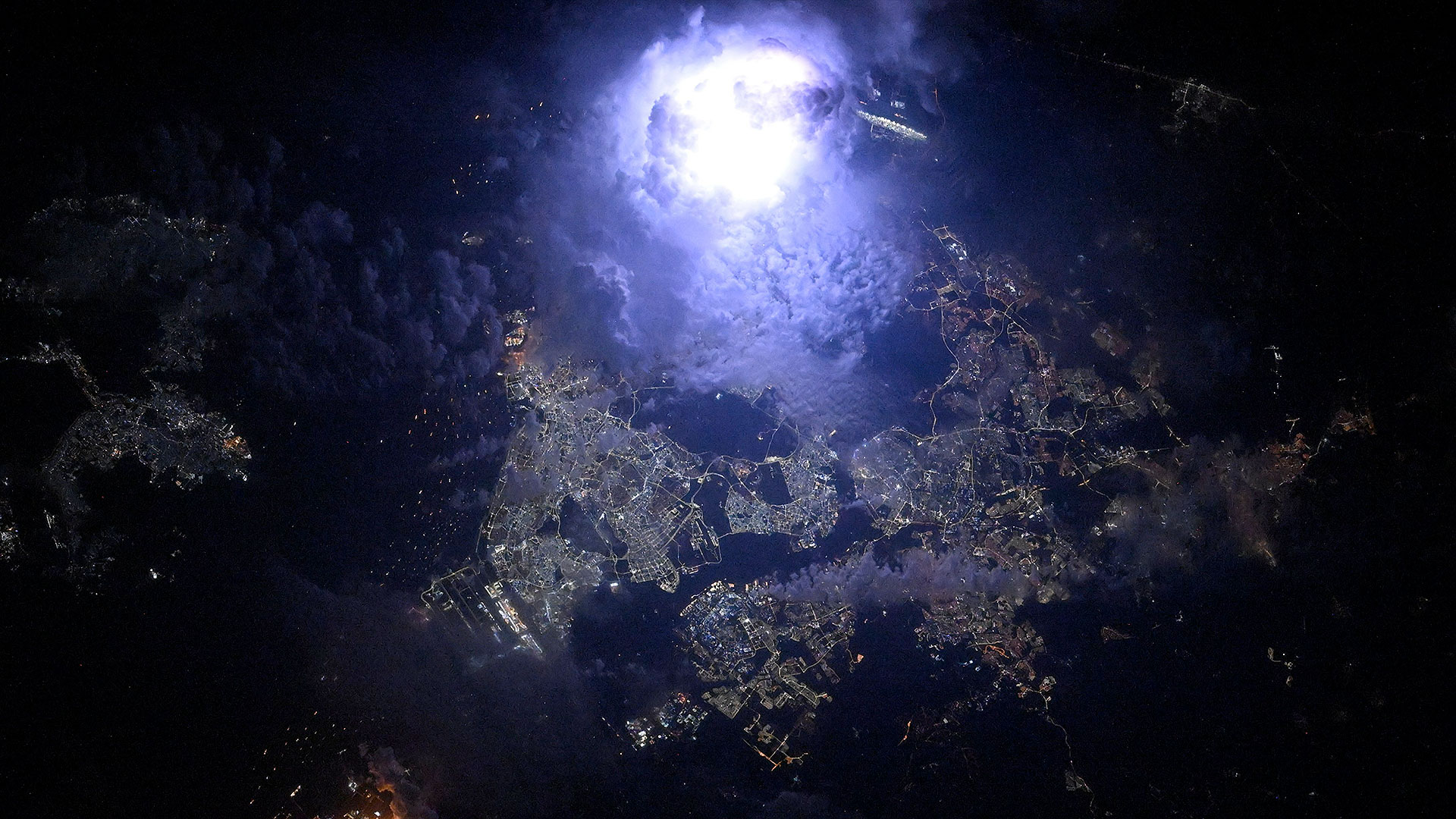The ISS has been leaking for 5 years. NASA and Russia disagree on how to fix it
"NASA has expressed concerns about the structural integrity."

NASA and the Russian space agency are not in agreement about the risk an ongoing leak poses to the space station, a U.S. advisory committee said.
NASA and Roscosmos also disagree about the causes and remedies for the leak in the Russian PrK module, International Space Station advisory committee chair Bob Cabana (a former astronaut) said during a brief livestreamed meeting on Wednesday (Nov. 13).
Roscosmos, Cabana added in a recording on Spaceflight Now's X (formerly Twitter) feed, "does not believe catastrophic disintegration of the PrK [module] is realistic, and NASA has expressed concerns about the structural integrity of PrK and the possibility of a catastrophic failure."
Related: Top 'safety risk' for the ISS is a leak that has been ongoing for 5 years, NASA audit finds
The leaking area in the Russian segment of the orbital complex has been ongoing for five years. There was a temporary increase in the leak rate that was patched earlier this year, and NASA has emphasized the ISS crew is in no immediate danger.
NASA's Office of the Inspector General nevertheless called the leak the top "safety risk" to the ISS in a NASA audit published on Sept. 26. Parts of the ISS date to 1998; like any aging complex, maintenance and issues like this are to an extent, expected.
Troubleshooting is ongoing on the matter, Cabana emphasized, but NASA and Roscosmos "don't have a common understanding of what the likely root causes or the severity of the consequences of these leaks."
Breaking space news, the latest updates on rocket launches, skywatching events and more!
"The Russian position is that the most probable cause of the cracks is high cycling caused by micro-vibrations," Cabana said, referring to flexing of metal and similar components that heat and cool as the ISS orbits in and out of sunlight.
"NASA believes the PrK cracks are likely multi-causal — including pressure and mechanical stress, residual stress, material properties and environmental exposures," Cabana continued.
NASA and Russia disagree about whether "continued operations are safe", he added, but the remedy for now is to keep the hatch closed between the U.S. and Russian side as investigations continue.
The two agencies will continue meeting to seek "common understanding of the structural integrity”, Cabana pledged, but he did not provide a timeline. Academic and industry experts will also be consulted.
The Nov. 13 meeting was the first public one by the ISS advisory committee since March 2020, before the pandemic disrupted such activities worldwide. Former chair and Apollo astronaut Tom Stafford died in March 2024 at age 93.
Roscosmos and NASA are the principal partners in the ISS. They continue to collaborate for policy and technical reasons (the ISS cannot be broken apart, for example) in the wake of the internationally condemned Russian invasion of Ukraine in 2022, which severed most international space relationships with Russia.
Russia plans to leave the ISS as soon as 2028, while other partners have committed to 2030.
Join our Space Forums to keep talking space on the latest missions, night sky and more! And if you have a news tip, correction or comment, let us know at: community@space.com.

Elizabeth Howell (she/her), Ph.D., was a staff writer in the spaceflight channel between 2022 and 2024 specializing in Canadian space news. She was contributing writer for Space.com for 10 years from 2012 to 2024. Elizabeth's reporting includes multiple exclusives with the White House, leading world coverage about a lost-and-found space tomato on the International Space Station, witnessing five human spaceflight launches on two continents, flying parabolic, working inside a spacesuit, and participating in a simulated Mars mission. Her latest book, "Why Am I Taller?" (ECW Press, 2022) is co-written with astronaut Dave Williams.
